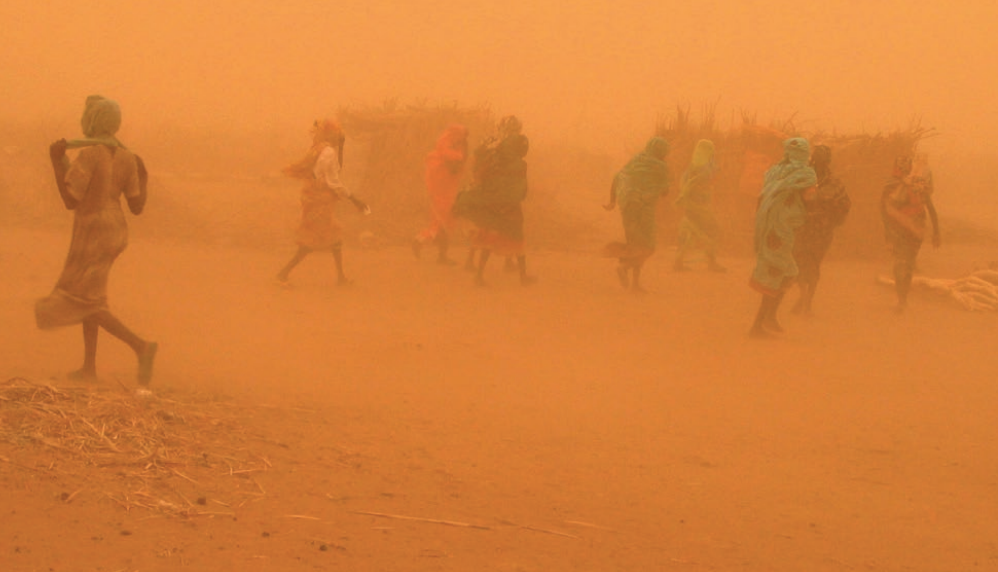The IPCC’s Special Report on Climate Change and Land: What’s in it for Africa?

Introduction
The Intergovernmental Panel on Climate Change (IPCC) published itsClimate Change and Land: An IPCC Special Report on climate change, desertification, land degradation, sustainable land management, food security, and greenhouse gas fluxes in terrestrial ecosystems in August 2019.
The Special Report was a response to proposals from governments and observer organisations to the IPCC. It assesses the existing science to date on how greenhouse gases are released and absorbed by land-based ecosystems, and the science on land use and sustainable land management in relation to climate change adaptation and mitigation, desertification, land degradation and food security. The findings are of great importance to decision-makers across Africa and the world.
This publication unpacks the IPCC Special Report on Climate Change and Land for decision-makers in Africa. It includes supplementary material from recently published research that extends and explains the points made in the IPCC’s Special Report. This publication responds to widespread demand among CDKN’s African partner networks for region-specific information.
Download the full publication from the right-hand column. The key messages from the publication are provided below. See the full text for much more.
About this publication
This is not an official IPCC publication. The IPCC’s own Summary for Policy-Makers focuses principally on global issues and trends.
This report distils the richest material available on Africa from the 1,300 pages of the Special Report. The publication has not been through the comprehensive governmental approval process that IPCC endorsement requires. However, the expert research team has benefited from review by IPCC lead authors in their personal capacities and other expert reviewers to ensure fidelity to the original report (see Acknowledgements in the full text).
In a few places in the report, the authors have included supplementary material from recently published research that extends and explains the points made in the IPCC’s Special Report. The authors have clearly labelled this supplementary material ‘Beyond the IPCC’.
Explore a summary presentation of this publication:
IPCC Special Report on Climate Change and Land: What’s in it for Africa? from Climate and Development Knowledge NetworkKey messages
The overarching key messages explored in this publication are listed below. In the publication, each of these key messages has a dedicated chapter providing a wealth of information and knowledge relevant to African nations:
- The climate and land interact with and influence each other.
- Unsustainable land management contributes to global warming.
- Climate change is already reducing the productivity of land.
-
Dryland areas are expected to become more vulnerable to desertification in Africa.
-
Desertification has implications for food security and poverty in Africa.
- Community and policy responses can combat desertification.
- See page 14 of the full text for information on proven technologies.
- See page 16 of the full text for information on measures to combat soil erosion.
- Managing land, value chains and climate risks can deliver climate adaptation, mitigation and development benefits.
- See page 17 of the full text for some actions minimise pressure on land.
- Some actions increase pressure on land. See page 21 for information on best practices that can help.
- Coordinated action can help address climate change and end hunger.
-
Insecure property rights and lack of access to credit and agricultural advisory services hamper progress – especially by women.
-
The skills and knowledge of women and marginalised groups are not yet sufficiently recognised.
-
Integrated governance is needed to maximise the benefits of land and water.
-
Emissions reductions in other sectors are vital to relieve pressure on land.
In summary, if we care for the land, it will care for us. If we nurture healthy soils and productive and diverse ecosystems, the land can more effectively regulate the local, regional and global climate. It is possible to manage land responsibly to provide food, fibre, fuel and the other benefits that sustain human resilience and wellbeing directly. However, sustainable land management needs to happen in the context of cross-cutting policies and governance that relieve pressure on the land and enable human society to pursue its other vital goals in less ‘land hungry’ ways.
Suggested citation
Dupar, M. (2019). IPCC’s Special Report on Climate Change and Land: What’s in it for Africa? Cape Town: Climate and Development Knowledge Network, Overseas Development Institute and SouthSouthNorth.
(0) Comments
There is no content